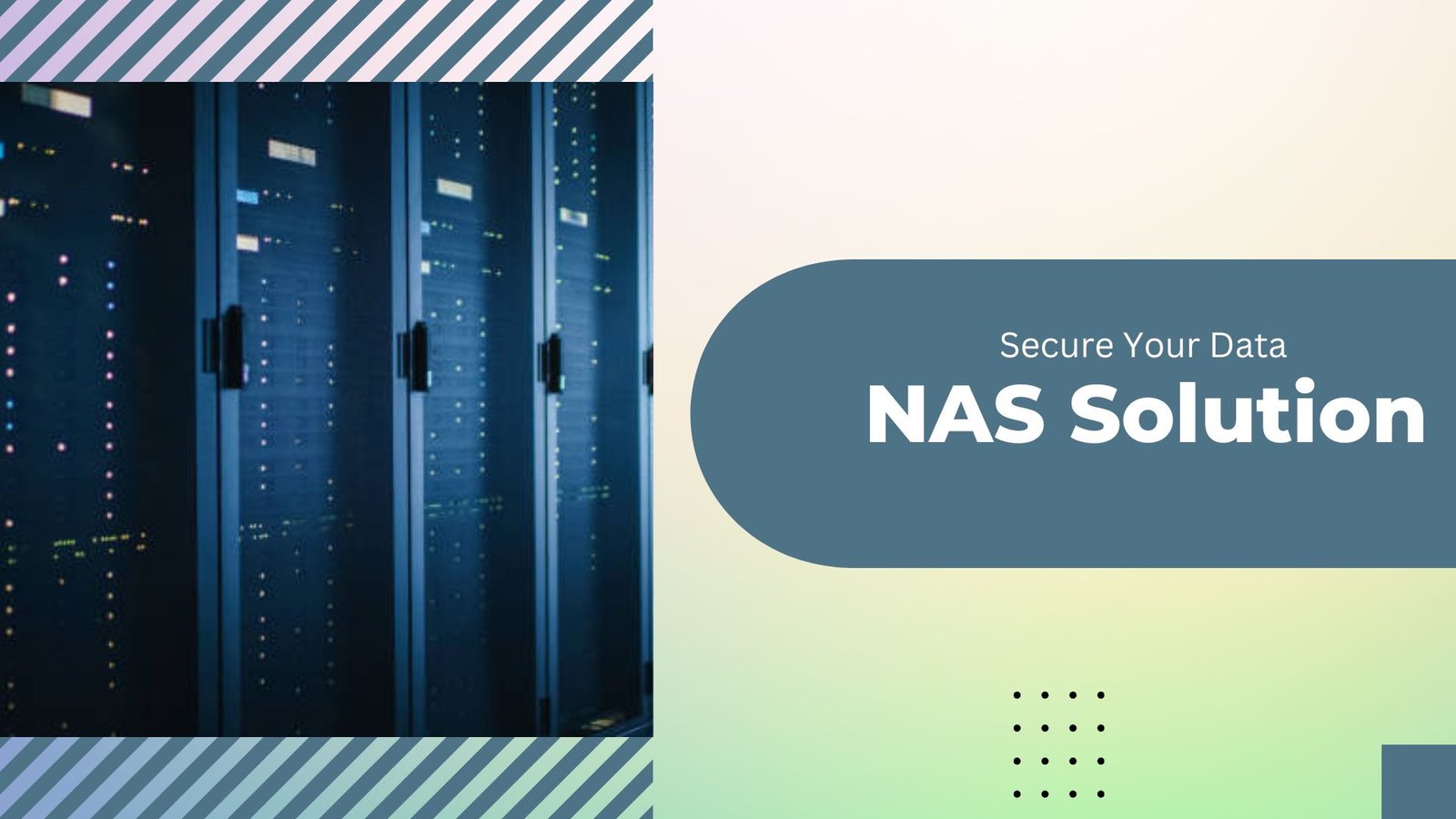In today’s digital world, data has become the most valuable asset for individuals and businesses alike. From personal photos and important documents to critical company information, the loss of such data can cause irreparable damage. Therefore, it’s crucial to ensure that your data is kept safe and secure at all times. That’s where NAS (Network Attached Storage) solutions come into play. They provide a more secure and reliable way to store and access your data, as well as offer various features to make data management much easier. In this blog post, we will discuss why NAS solutions are the way to go when it comes to keeping your data safe.
What are NAS Solutions?
A Network-Attached Storage (NAS) solution is a type of storage system that enables multiple users and devices to access data over a network. NAS solutions usually come with a pre-installed hard drive or offer the possibility of being expanded to store massive amounts of data. NAS solutions use advanced security mechanisms to keep your data safe from unauthorized access.
Data Encryption
Data Encryption is a famous technique used by NAS solutions to keep your data secure. This technique essentially scrambles the data by converting it into codes that are difficult to understand by people who don’t have the necessary authorization to access the data.
User Authentication
User authentication is also a must-have mechanism provided by NAS solutions. This mechanism helps businesses secure their data by allowing only authorized personnel access. Most NAS solutions offer two-factor authentication, which involves the use of a password and another authentication method, such as a security token, fingerprint, or facial recognition.
Firewall and Antivirus
Incorporating Firewall and Antivirus software with NAS solutions increases data security. Firewalls work by blocking unauthorized access to the network, while antiviruses detect and remove malware, which is a common source of data breaches.
Automatic Backup
Automatic Backup is another unique feature of NAS solutions that ensures your data is always safe. This feature works through scheduled backups on a periodic basis. Regular backups give you a sense of security as you can retrieve the data even after experiencing some business catastrophes such as flooding, fires, or cyber-attacks.
Why choose NAS solutions?
NAS solutions offer numerous benefits, including:
Enhanced data protection- NAS provides data redundancy that protects against data loss due to hardware failure, theft, or other disasters.
Improved data accessibility- NAS enables easy data sharing within a company or a household, allowing multiple users to access the same files simultaneously.
Cost-effectiveness- NAS solutions offer affordable and efficient storage solutions compared to traditional methods of data storage.
Scalability- NAS solutions are flexible and can scale according to user needs.
NAS Security Risks
While NAS solutions offer high levels of data protection, they are not entirely immune to security risks. Some security risks associated with NAS units include:
Malware- NAS units can be infected with malware, which can compromise the integrity and confidentiality of data stored.
Unauthorized access- If not properly secured, NAS devices can be accessed by unauthorized users, risking the confidentiality of sensitive data.
Configuration errors- Misconfigured NAS settings can leave the devices vulnerable to unauthorized access and data breaches.
NAS Solutions Provide Greater Data Security
One of the main reasons why people prefer NAS solutions is due to their superior data security features. Unlike traditional external hard drives or cloud storage services, you have complete control over how your data is stored and accessed. This means that you can set up access permissions, use encryption, and configure RAID (Redundant Array of Independent Disks) to ensure that your data is protected against unauthorized access and data loss. Furthermore, you can back up your data to multiple drives, which provides an additional layer of protection against data loss due to hardware failures.
Centralized Data Management
Another advantage of NAS solutions is the ability to centralize your data in one place, which makes data management much simpler and less time-consuming. With a NAS system, you can access your data from any device connected to your network, which means you don’t have to worry about transferring files between devices. Furthermore, many NAS solutions offer cloud backup features, which means that you can access your data even when you’re away from your home or office.
Expandable Storage Capacity
Whether you’re an individual or a business, the need for more storage space is inevitable. One great thing about NAS systems is that they offer expandable storage capacity, which means that you can easily add more hard drives to your system as your storage needs grow. This is a much more cost-effective solution compared to upgrading your entire storage infrastructure every time you need more space. Moreover, you can add hard drives of different capacities and speeds, which gives you more flexibility when it comes to storage management.
Streamlined Backup and Recovery
Backing up your data is an essential part of data management, and NAS solutions make this process much easier and efficient. With the ability to automate backups and set up a smart backup schedule, you can ensure that your data is backed up without any hassle. Additionally, in case of data loss due to hardware failure or other reasons, the recovery process is much simpler with NAS solutions. You can restore your data from backups or use RAID recovery methods to retrieve lost data.
Affordable and Eco-Friendly
Another great thing about NAS systems is that they are affordable and eco-friendly compared to other storage infrastructure options. They consume much less power than traditional servers and hard drives, which means that they have a lower carbon footprint. Additionally, the cost of setup and maintenance is much lower in the long term compared to traditional storage infrastructure due to their modular and expandable nature.
NAS Security Best Practices
To maximize your NAS security and minimize your data security risks, here are some best practices to consider:
– Keep your NAS system up-to-date with the latest security patches and firmware updates. This involves updating the NAS firmware, local network servers, and disk encryption software.
– Enable password protection and regularly update passwords. Choose strong passwords that include a combination of uppercase and lowercase letters, numbers, and symbols.
– Limit administrative access to designated personnel and avoid sharing login credentials with others.
– Configure firewall settings and enable HTTPS encryption to secure data transmissions between your NAS unit and other network devices.
– Backup your data to an external storage device to safeguard against data loss due to hardware failure or other disasters.
Conclusion
In conclusion,Network-attached storage (NAS) is a versatile and scalable storage solution that can be used to protect your data in a variety of ways. By implementing strong security measures, such as encryption, access control, and regular backups, you can help to keep your data safe from unauthorized access, theft, and natural disasters.
NAS solutions offer a more secure, reliable, and cost-effective way to store and manage your data. Whether you’re an individual who wants to keep personal data safe or a business that requires secure data management, NAS solutions are the way to go. With features such as data encryption, centralized data management, expandable storage capacity, streamlined backup and recovery, and eco-friendliness, NAS solutions provide a complete data management solution at an affordable cost. If you haven’t already, it’s time to consider implementing NAS solutions for your data storage needs. For more information and personalized guidance on how NAS can transform your data security strategy, don’t hesitate to contact us. sprunki horror Endless Fun Awaits!



